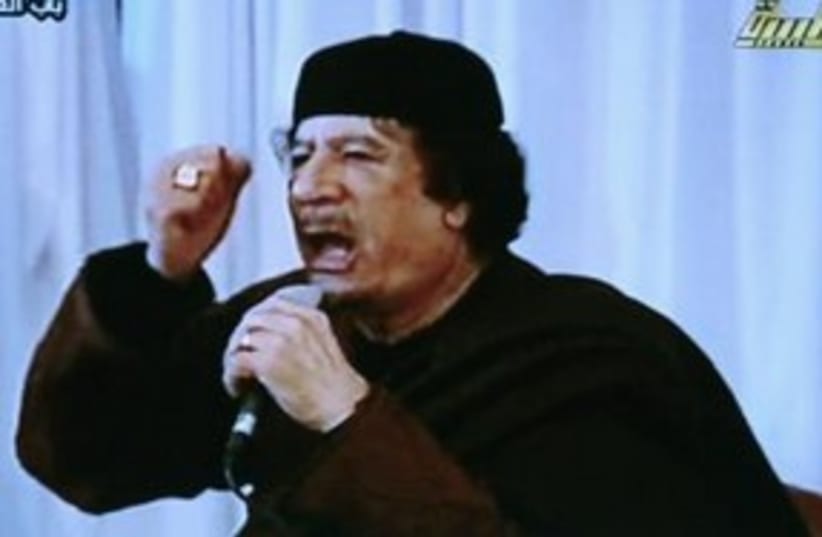Clinton defended the performance of NATO forces conducting air strikes to enforce a no-fly zone and protect civilians from attack by Gaddafi's forces in fighting between the longtime North African leader and opposition forces.The United States took the lead in air strikes when military action was first authorized by the United Nations on March 17 against Gaddafi loyalists attacking civilians. NATO assumed full command of military operations from the United States, Britain and France last Thursday.NATO's air assault has targeted Gaddafi's military infrastructure but only to protect civilians, not to provide close air support for rebels, to their dismay, as part of the military measures authorized by the U.N. Security Council.Western air power has fashioned a rough military balance in Libya, preventing Gaddafi troops from overrunning the ragtag rebel force dominating the east -- but not forceful enough for the insurgents to advance hundreds of miles (km) along the Mediterranean coast to the capital, Tripoli, in the west.Curt Weldon, a former Republican representative from Pennsylvania with a history of pursuing independent foreign policy initiatives to the consternation of the US government, was in Tripoli to try to persuade Gaddafi to step down.State Department spokesman Mark Toner said Weldon was on a personal trip and not acting on behalf of the US government.In an opinion piece published in The New York Times, Weldon said had made the visit at the invitation of Gaddafi's chief of staff and hoped to convince Gaddafi to step down, after which a UN-monitored ceasefire should be implemented.
US rebuffs Gaddafi plea to Obama on air campaign
Libyan leader asks US president to halt air campaign against his forces; Clinton dismisses appeal, urges Gaddafi to go into exile.

Clinton defended the performance of NATO forces conducting air strikes to enforce a no-fly zone and protect civilians from attack by Gaddafi's forces in fighting between the longtime North African leader and opposition forces.The United States took the lead in air strikes when military action was first authorized by the United Nations on March 17 against Gaddafi loyalists attacking civilians. NATO assumed full command of military operations from the United States, Britain and France last Thursday.NATO's air assault has targeted Gaddafi's military infrastructure but only to protect civilians, not to provide close air support for rebels, to their dismay, as part of the military measures authorized by the U.N. Security Council.Western air power has fashioned a rough military balance in Libya, preventing Gaddafi troops from overrunning the ragtag rebel force dominating the east -- but not forceful enough for the insurgents to advance hundreds of miles (km) along the Mediterranean coast to the capital, Tripoli, in the west.Curt Weldon, a former Republican representative from Pennsylvania with a history of pursuing independent foreign policy initiatives to the consternation of the US government, was in Tripoli to try to persuade Gaddafi to step down.State Department spokesman Mark Toner said Weldon was on a personal trip and not acting on behalf of the US government.In an opinion piece published in The New York Times, Weldon said had made the visit at the invitation of Gaddafi's chief of staff and hoped to convince Gaddafi to step down, after which a UN-monitored ceasefire should be implemented.